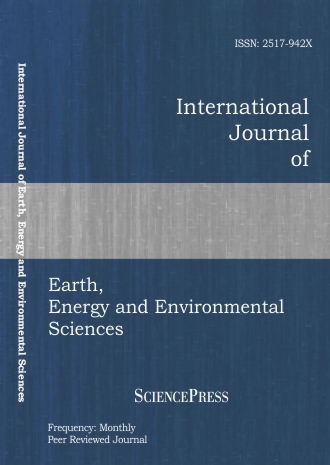
Scholarly
Volume:9, Issue: 7, 2015 Page No: 795 - 799
International Journal of Earth, Energy and Environmental Sciences
ISSN: 2517-942X
1381 Downloads
Durability Enhancement of CaSO4 in Repetitive Operation of Chemical Heat Pump
An important problem for the CaSO4/CaSO4・1/2H2O Chemical heat pump (CHP) is that the material is deactivated through repetitive reaction between hydration and dehydration in which the crystal phase of the material is transformed from III-CaSO4 to II-CaSO4. We investigated suppression on the phase change by adding a sulfated compound. The most effective material was MgSO4. MgSO4 doping increased the durability of CaSO4 in the actual CHP repetitive cycle of hydration/dehydration to 3.6 times that of undoped CaSO4. The MgSO4-doped CaSO4 showed a higher phase transition temperature and activation energy for crystal transformation from III-CaSO4 to II-CaSO4. MgSO4 doping decreased the crystal lattice size of CaSO4・1/2H2O and II-CaSO4 to smaller than that of undoped CaSO4. Modification of the crystal structure is considered to be related to the durability change in CaSO4 resulting from MgSO4 doping.
References:
[1] COCN, (Leading-edge technology to be applied to energy network), 2014,